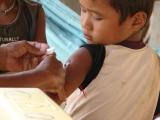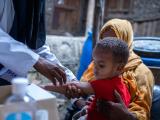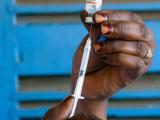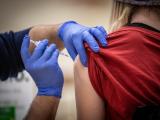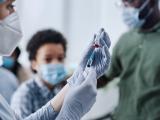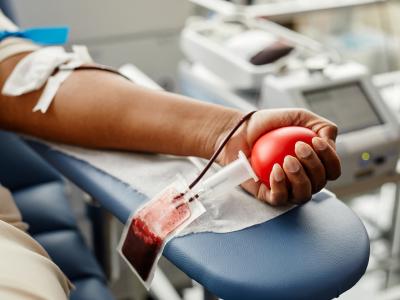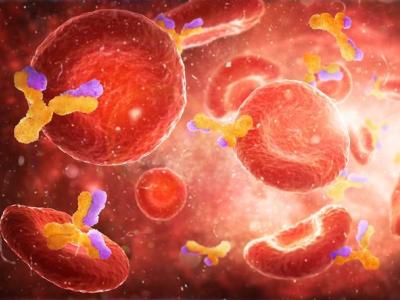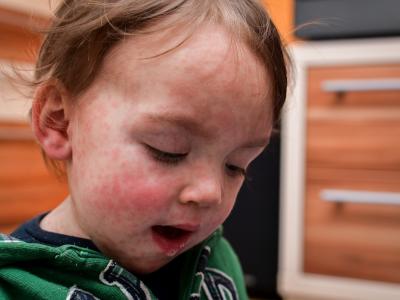May 16, 2002 (CIDRAP News) – A recent survey by the Centers for Disease Control and Prevention (CDC) indicated that clinical physicians have limited knowledge of smallpox, with many believing that smallpox vaccine is as safe as standard childhood vaccines and a few thinking that smallpox is still occurring in developing countries.
An accompanying focus-group survey of laypeople suggested that the public knows very little about smallpox and that most people are not very worried about the threat of a bioterrorist attack involving the disease, according to Glenn Nowak, PhD, associate director for communications at the CDC's National Immunization Program in Atlanta. Many people believed that the disease is almost always fatal, but most were not very interested in being vaccinated against smallpox in the absence of an outbreak, he said.
"I think the overall finding among both groups is that if the recommendation regarding use of the vaccine is broadened, many members of the public would interpret that to mean there's an increased threat of a smallpox attack," Nowak said.
The CDC did the study as part of its review of smallpox vaccination recommendations, which, in the absence of an outbreak, call for vaccinating only laboratory personnel who work with smallpox and other orthopox viruses. The CDC's interim plan for responding to a smallpox outbreak calls for "ring vaccination," or targeting vaccination toward contacts and potential contacts of smallpox patients, rather than mass vaccination in whole cities or regions.
Nowak presented the study findings last week to the smallpox working group, a joint panel of CDC's Advisory Committee on Immunization Practices (ACIP) and National Vaccine Advisory Committee. The working group is expected to present options on smallpox vaccination to ACIP June 19 and 20, before ACIP makes recommendations to the director of CDC. CDC is also planning to hold several public forums over the next month to gather comments on the vaccination question.
Physician knowledge and attitudesNowak, who was one of the principal investigators in the study, said the CDC conducted 1-hour interviews with 17 clinicians, including specialists in emergency medicine, family practice, pediatrics, and infectious diseases. Most were about 40 or younger. "The purpose was to learn more about what physicians knew about smallpox, not so much to quantify their knowledge, but to get a better sense of what they believe, what they perceived, what they knew about smallpox and smallpox immunization," Nowak told CIDRAP News.
Overall, the interviews showed "there really wasn't extensive knowledge" of smallpox, he said. "We'd expect to find, based on this, that infectious disease physicians and pediatricians would be more knowledgeable than emergency physicians and family physicians," in part because ID physicians and pediatricians know more about vaccines, he said.
"There was limited knowledge of smallpox vaccine," Nowak reported. "Many assume it's as safe as routinely recommended childhood vaccines, when in fact the safety profile isn't quite the same." (Smallpox vaccine can cause serious reactions in people who are immunocompromised or have a history of eczema; the usual estimate is that the vaccine would trigger a fatal reaction in about 1 in 1 million recipients. Also, vaccination of a pregnant woman can cause fetal vaccinia leading to stillbirth.)
"Many of the physicians would assume that we can effectively screen people not only for contraindications [to vaccination] but also for adverse reactions," Nowak said. But some people who have no contraindications for vaccination may still be susceptible to adverse reactions, and it's difficult to identify them, he explained.
The clinicians felt the current policy of limiting vaccination to at-risk lab workers unless an outbreak occurs is reasonable, Nowak continued. "If it's expanded and it puts them [physicians themselves] in a group for whom vaccination is recommended, they want to know why, they want to know the cost-benefit ratio for them," he added.
Regarding the outbreak response plan, many physicians were unfamiliar with the term "ring vaccination," Nowak said. When it was explained, they thought it made sense. However, "They also believe it couldn't be the only policy you used after an outbreak, that you'd have to support it with a policy to provide vaccine to more people. . . . They thought there would be strong public demand for the vaccine and that you'd have to recognize that."
Another key finding was that clinicians were very concerned about liability. If they were to vaccinate people absent an outbreak, they wanted to be sure they wouldn't be held liable for any adverse reactions, Nowak said. Rather than vaccinate people pre-emptively, many thought it would be better to make sure the vaccine would be readily accessible if an outbreak occurred—"putting it as close as possible to an arm without putting it in an arm."
Although the physicians were very interested in smallpox, they reported that it's "really hard to keep abreast of developments related to smallpox because it's not a disease that's circulating anywhere in the world," and not something they face in their practices, Nowak said. At the same time, "There were two or three people who thought that smallpox still occurred somewhere in the developing world," he said. Smallpox disease was declared eradicated in 1980, but the United States and Russia hold stocks of the virus, and there is concern that terrorists may possess the virus.
Laypeople's knowledge and viewsThe CDC assessed the public's ideas about smallpox by organizing 20 focus group meetings involving 8 people each. The groups met in Philadelphia, Chicago, and San Francisco between April 15 and 24, Nowak said.
The groups had "many misperceptions" about smallpox, he said. "Many believe that exposure nearly always resulted in death. There were maybe 20% or so who thought it still occurred naturally in the developing world. . . . Many assumed that the vaccine provided lifetime protection. Some believed that children today were still receiving smallpox vaccine; these were the older ones."
Most of the people said they would want to be vaccinated if there were an outbreak, but "We didn't see a lot of people really wanting access to the vaccine today," Nowak said.
People who had been vaccinated in childhood mostly assumed the vaccine was safe. After the groups read CDC fact sheets about the vaccine, Nowak said, they fell into two camps: a "vast majority" who viewed the risk of serious reactions as extremely low and would still want to be vaccinated in case of an outbreak, and a small minority who were concerned about the vaccine's safety and would still be concerned even in the context of an outbreak.
Nowak also observed that the concern about bioterrorism varied by region: it was strongest in Philadelphia, lower in Chicago, and even lower in San Francisco. He said the full results of the study will eventually be published in a journal.

